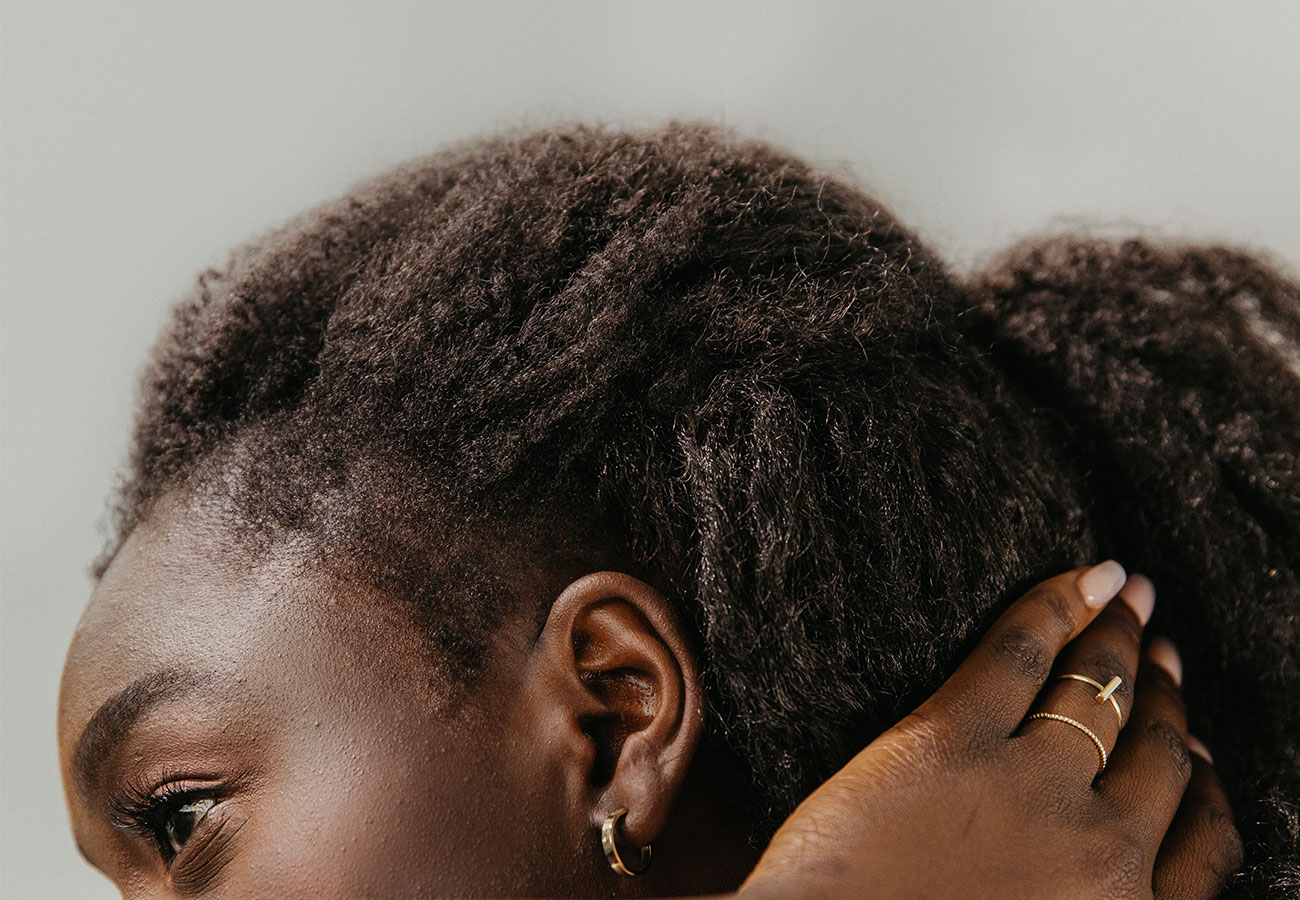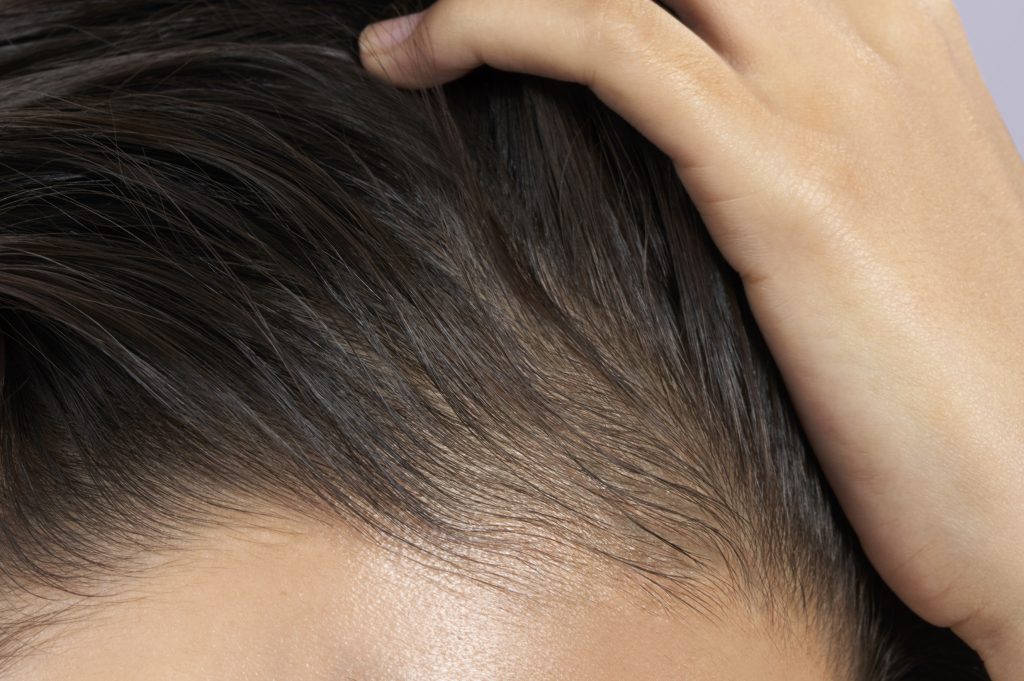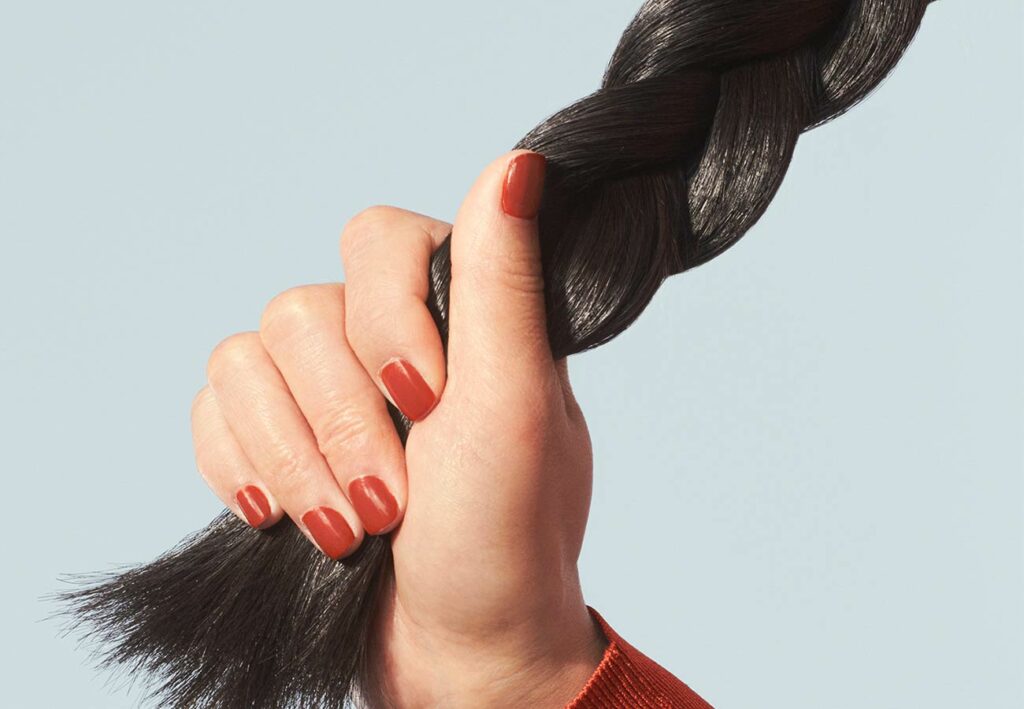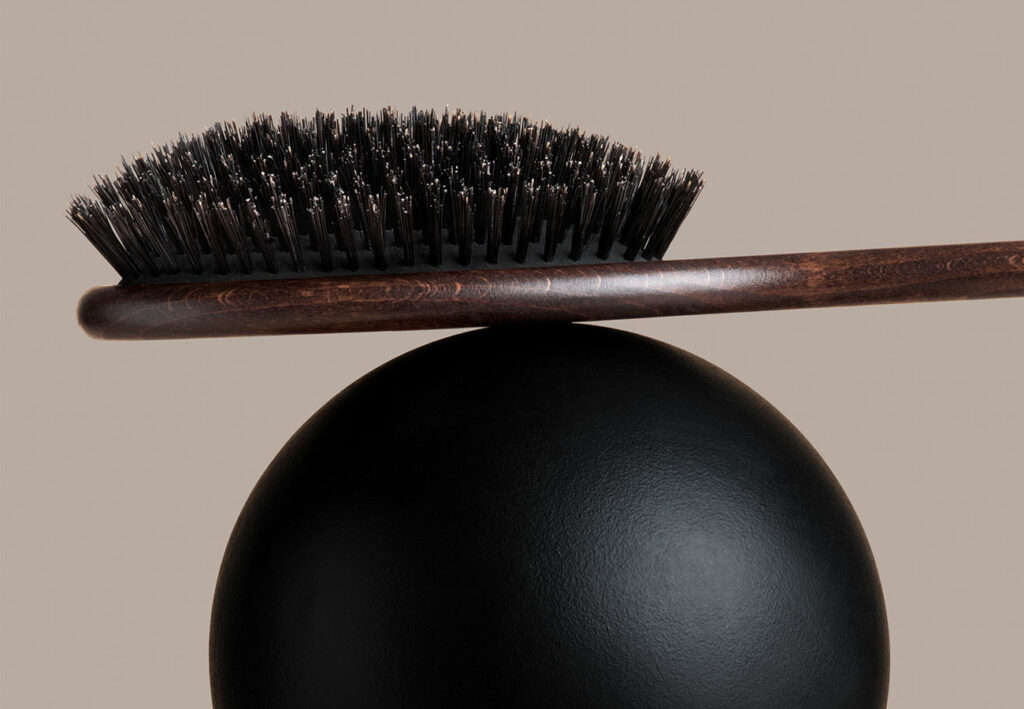Eastern time
In Canada, this includes (but is not limited to) Quebec, Toronto, and Ontario. In the U.S., this includes (but is not limited to) Maine, New York, and Florida.
Your hair forecast
If your hair is naturally fine, thin, or straight:
Winter air can spell limp locks for you, especially up North, says Eliut Rivera, owner of the self-titled salon in New York City. “I always recommend that people with this hair type use a texturizing product to create all-over body,” Rivera says. Klodi Stavre, a freelance stylist based in Toronto adds that those with especially fine strands may want to consider lifting their locks at the roots only using a dry shampoo, such as Prose custom dry shampoo, to avoid adding any weight to hair. “I also tell my clients with dry winter hair to use a lot more oil-based products, especially on their ends,” Rivera says. We recommend Prose custom hair oil, which gives hair a shiny finish.
If your hair is naturally wavy, curly, or thick:
Lack of humidity can make it fall flat. “Since no one wants to go out in winter with wet hair, I recommend that my curly-haired clients use a diffuser until their hair is about 75-percent dry,” Rivera says. Since thick, textured hair is naturally drier at the ends, Rivera says to concentrate the diffuser at the roots and style the ends without heat; simply apply serum or curl cream to them, and finishing with a hair oil to seal in moisture.
Central time
In Canada, this includes (but is not limited to) Saskatchewan and Manitoba. In the U.S., this includes (but is not limited to) Alabama, Illinois, and most of Texas.
Your hair forecast
Add, don’t strip, moisture
Dry winter hair is your biggest enemy. “Skin and hair can feel very thirsty in the dry winter months,” says Shelly Aguirre, a stylist at Maxine Salon in Chicago, who recommends stepping up to a moisturizing shampoo and conditioner in winter. Prose custom shampoo and conditioner both add just the right amount of hydration to hair, adjusting for the seasonal climate. “Also, try washing your hair less. Although a hot shower feels amazing when it’s 12 degrees outside, that will actually make dryness worse! Let your natural oils do their job,” she adds.
Combat static
Aguirre also says that static and hat hair are two big issues women in the Midwest face. “Since there’s virtually no humidity in the air, static electricity can take over your hair.” To combat static, Aguirre recommends not overdrying your hair. Leave some moisture in it when blowdrying, and use a light hairspray to tame fly-aways. To avoid hat hair, she says to try a looser fitting hat, which won’t crush your style. Or, wear a tighter fitting hat and make it part of your indoor style statement!
Mountain time
In Canada, this includes (but is not limited to) Northwest Territories and Alberta. In the U.S., this includes (but is not limited to) Arizona, Colorado, and Utah.
Your hair forecast
Care for your scalp
Stylists in this time zone report an uptick in dry hair and dry scalp during the winter months. “For dry scalp, I swear by scalp exfoliation,” says Sydney Cutler, a stylist and esthetician at Landis Salon in Salt Lake City. “This helps remove product residue and dry skin flakes allowing your scalp to breathe and promotes healthy hair growth,” she says. “It also balances your scalp’s natural oils so your hair gets neither too dry nor too oily.” While there are special scalp massagers and exfoliation brushes on the market, Prose offers a collection of four hand-crafted hair brushes, which can be used, in small circles at the root, for gentle sloughing. Cutler also suggests sleeping with a humidifier in the room during the winter months. “It leaves your skin and scalp feeling plump and dewy,” she says.
Look for extra-hydrating products
For dry hair, Cutler recommends switching to a hydrating shampoo and conditioner and styling damp hair with a leave-in conditioner for extra moisture. Another smart moisture move: Ask for a deep conditioning treatment at all your hair appointments during the colder winter months, and also incorporate one into your wash routine at least once weekly. .
Pacific time
Your hair forecast
Protect your color
The uptick in winter winds can affect the vibrancy of your hair, says Chris Petroff, a stylist at AT Tramp in Beverly Hills, CA. “Hair color fading is called oxidizing, which is caused by, yes, oxygen. I always recommend a hat or scarf in windy areas to act as a barrier between your locks and the elements,” says Petroff.
Address unwanted winter frizz
Cold humid coastal air can also create unwanted frizz, especially if you have curly hair, Petroff says. “I always finish styling this hair type with a little shine serum because it coats the strands with a nice gloss while serving as a road block between the hair and harsh weather.” And despite the fact that ocean air has some moisture in it, Petroff still says his clients complain of dryness. His solutions? Try deep conditioning with a hair mask at least once a week. “And on cold mornings, as tempting as it is, don’t take super-hot showers as they can dry out your hair and skin,” Petroff says.
Wrap up
No matter where you live in the U.S. or Canada, dry winter hair affects us all. However, there are ways to combat dryness, unwanted frizz, and color fade out. Armed with professional tips and high quality haircare, your strands won’t miss a beat.





